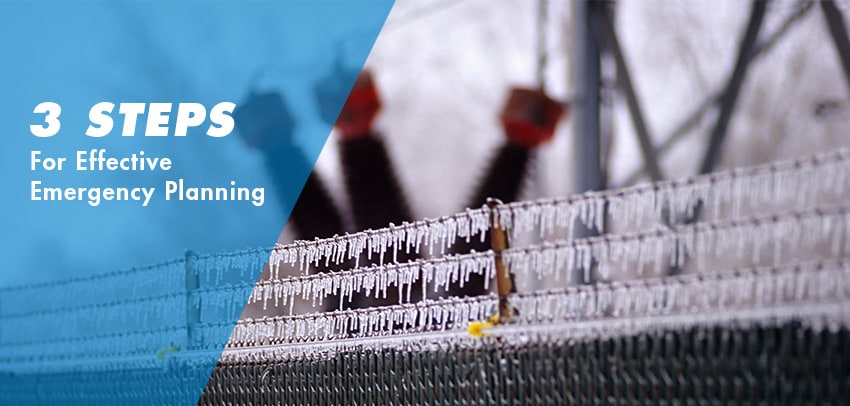- OUR APPROACH
-
COMMITTED TO YOUR SUCCESS
Our approach, developed over decades of experience, is fine-tuned to get the results you want.
We deliver concept-to-completion solutions, designed by temporary power specialists with access to the largest inventory of high-quality power generation and distribution equipment in North America.
-
- Equipment
-
RENTALS
From a wide range of diesel and natural gas generators to transformers, cable, light towers and more, our large rental fleet and extensive vendor network ensure we’ll have the temporary power equipment that your project requires — every time.

-
- Industries
-
INDUSTRIES WE SERVE
For nearly 20 years, we have been at work powering projects across Canada’s industrial sectors.
Select from this sampling of industries to learn how we can put our expertise to work for you.
VIEW ALL- Projects
- About
-
A PROUD HISTORY. A BRIGHT FUTURE.
From our inception in 1998, we have been building our team on a foundation of excellence. Our team members’ passion, expertise and commitment are what have allowed us to grow into a national company with projects across Canada.
Click on the links to learn more about our history, our team or our career opportunities.
- Blog
- Contact
-
With Hurricanes Irma and Harvey in the southern states, record-breaking flooding in Ontario and a devastating wildfire season in BC, it has been a harrowing summer for many individuals and businesses in Canada and the U.S.
Every year, natural disasters are setting new records for their frequency, severity and cost to individuals, businesses and governments. But the numbers are particularly dire for businesses. When disaster strikes, it is estimated that 40% of businesses never recover.
That is why it is so important for businesses to be prepared. While we can’t predict when disasters will strike, or where, every business can take steps to ensure they will be able to recover as quickly as possible if the worst happens.
We’ve written about emergency preparedness before but there is always more that can be said. This time, we spoke to two emergency management experts to compile a list of resources that are available to Canadian businesses to help with their emergency planning.
Start With Your Local Government
According to experts, the most effective disaster planning and response is focused at the local level. That could be why emergency preparedness and response in Canada is structured to start with local governments. “It’s up to the cities to get organized,” explains Tara Stroup, Port Coquitlam’s Emergency Program Officer. “It sits with the cities because that’s where the legislation dictates that it be focused.”
Stroup has been working extensively with Port Coquitlam’s business community over the past few years to ensure that they are prepared in the event of an emergency. That work has included a survey, a letter of understanding that gives Stroup an idea of resources that businesses are willing to offer in case of an emergency, and a series of workshops aimed at ensuring that businesses have all the resources that they need to create and implement a business continuity plan. The workshops have included presenters such as CP Rail (”They’re masters at safety,” says Stroup. “We brought them in as a case study.”), a local business owner who lost everything in a fire, and the Insurance Bureau of Canada.
While not every city will have such a comprehensive approach, each city should have a point person who can help. Sybille Sanderson is the Emergency Program Coordinator for the Cowichan Valley Regional District, as well as the Chair of the British Columbia Association of Emergency Managers. She encourages businesses to contact their local Emergency Program Coordinator. “In my community, the businesses will contact me, and I will go out to their place,” she explains. “I have a couple of templates that I offer them that they can work through and I will do a walkaround and identify some of the concerns.”
On top of making contact, many municipalities offer emergency preparedness templates and other resources for businesses on their websites.
Port Coquitlam’s next emergency preparedness workshop for businesses is on November 15 at the Poco Inn and Suites. Contact Tara Stroup at the City of Port Coquitlam for details.
Be Aware of Provincial and Federal Government Resources
While most of the planning and execution for emergency response happens at the local level, the provincial and federal governments also offer resources. Templates, checklists and contact information for relevant organizations can be found on many provincial emergency preparedness websites, as well as on the Federal Government’s Public Safety site
On top of web resources, provincial governments also offer disaster relief to individuals and businesses that have been impacted by events such as natural disasters. But accessing that money can be a challenge. “Federally and provincially, they have to say it’s an event worthy of assistance,” says Sanderson, “And then people have to apply.” “It’s not the same as having insurance,” she explains, emphasizing the importance of being as prepared as possible.
For a list of provincial emergency management programs, click here
Don’t Skimp on Insurance
“I think businesses need to get on board with understanding how important it is to have some kind of insurance, and to really understand what that insurance covers,” says Sanderson. In order to gain this understanding, business owners and managers need to be able to ask the right questions. Sanderson explains, “it’s going to depend very much on the insurance broker, and asking them pointed questions: here’s what we’re looking for, and is there an insurance provider who will underwrite that.”
For insurance guidance, both Sanderson and Stroup recommend contacting the Insurance Bureau of Canada. “Because they’re not selling anything, per se, they’re a really good resource in terms of identifying what you need for insurance,” says Sanderson.
But while insurance is vitally important, Stroup emphasizes that it’s no match for thorough planning. “The insurance bureau has done lots of research to show business owners that it behoves them to get proper training and pieces of their plan in place,” she says. “A lot of businesses never recover in the recovery phases because they got on it too late.”
This BC government has created a website to offer valuable information about surviving the zombie apocalypse. To find out how to prepare for this inevitability, click here.
Bring In an Expert
Creating a thorough and workable business continuity plan can be a daunting task for businesses of any size. If your municipality doesn’t have the same level of support offered by Stroup and Sanderson, fortunately there are businesses that specialize in emergency preparedness.
If your company has the resources to bring in a consultant, there are plenty of options. The EPICC website (Emergency Preparedness for Industry and Commerce Council) lists members, many of whom are able to offer expert assistance.
Other region-specific organizations, like BCAEM, also list emergency preparedness service providers on their websites.
With emergency events on the rise, Sanderson is optimistic about the resources available to businesses. “There are more and more resources that are developing,” she says, because business continuity is important not only for the businesses themselves, but also for the health of the community as a whole.
“I know for us, it’s a valuable service that we can provide to our business owners in our community,” says Stroup, “ because we know in the end it’s going to make us stronger and more resilient.”
Related Articles
Subscribe for access to exclusive content
















